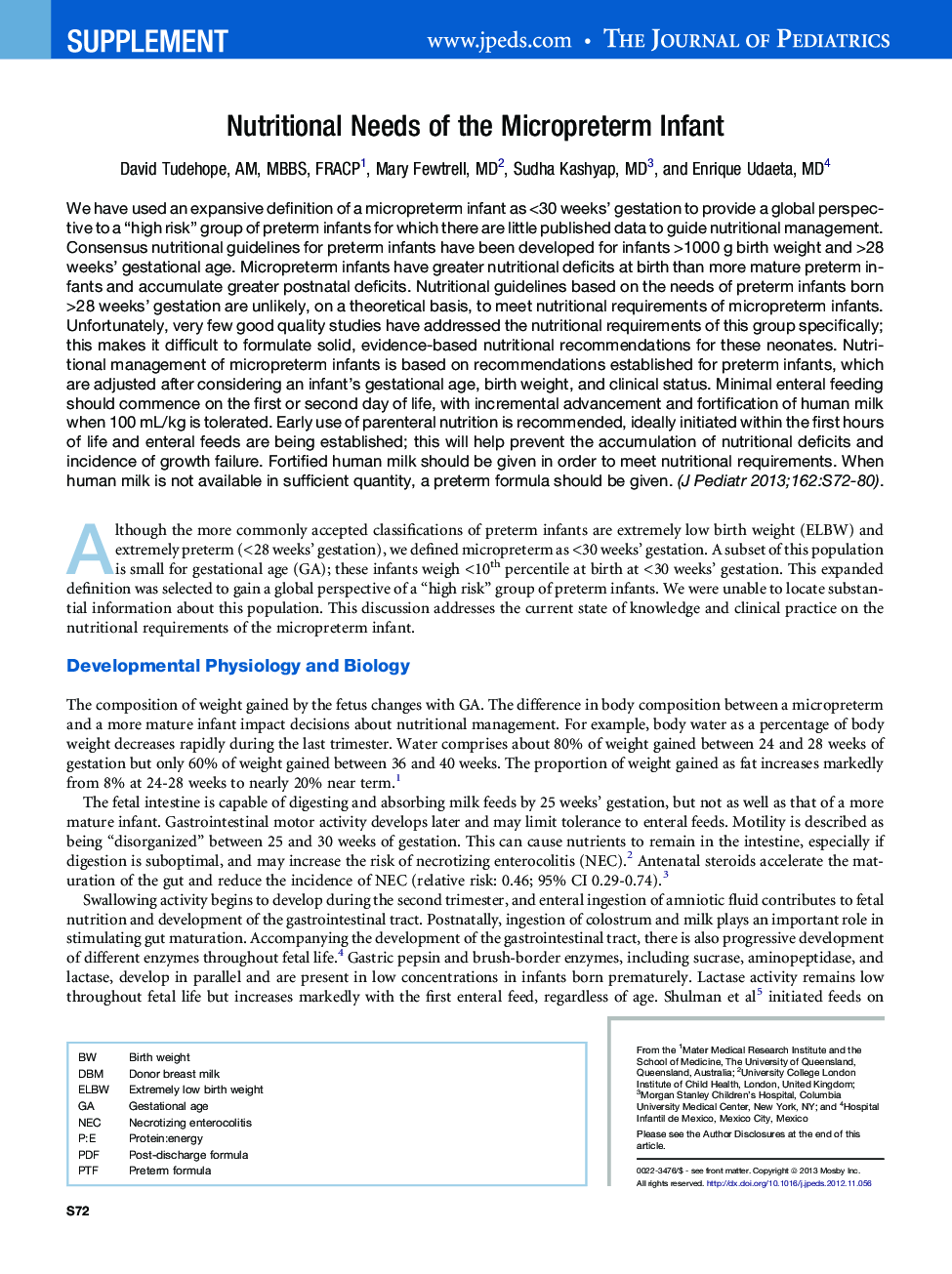| Article ID | Journal | Published Year | Pages | File Type |
|---|---|---|---|---|
| 4165459 | The Journal of Pediatrics | 2013 | 9 Pages |
We have used an expansive definition of a micropreterm infant as <30 weeks' gestation to provide a global perspective to a “high risk” group of preterm infants for which there are little published data to guide nutritional management. Consensus nutritional guidelines for preterm infants have been developed for infants >1000 g birth weight and >28 weeks' gestational age. Micropreterm infants have greater nutritional deficits at birth than more mature preterm infants and accumulate greater postnatal deficits. Nutritional guidelines based on the needs of preterm infants born >28 weeks' gestation are unlikely, on a theoretical basis, to meet nutritional requirements of micropreterm infants. Unfortunately, very few good quality studies have addressed the nutritional requirements of this group specifically; this makes it difficult to formulate solid, evidence-based nutritional recommendations for these neonates. Nutritional management of micropreterm infants is based on recommendations established for preterm infants, which are adjusted after considering an infant's gestational age, birth weight, and clinical status. Minimal enteral feeding should commence on the first or second day of life, with incremental advancement and fortification of human milk when 100 mL/kg is tolerated. Early use of parenteral nutrition is recommended, ideally initiated within the first hours of life and enteral feeds are being established; this will help prevent the accumulation of nutritional deficits and incidence of growth failure. Fortified human milk should be given in order to meet nutritional requirements. When human milk is not available in sufficient quantity, a preterm formula should be given.
